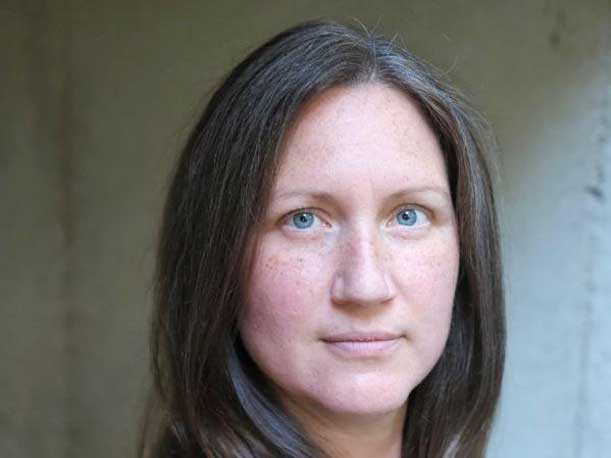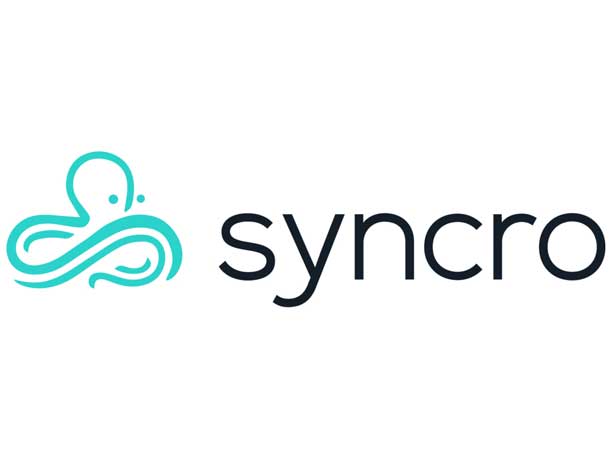Syncro CEO: Workplace Culture The ‘Sustainably-Motivating Element’
‘I have daughters, I have sons too but I have daughters and it’s a huge reason why I’m in this position,’ says Emily Glass, CEO of Syncro. ‘It’s hugely motivating for me personally not only to come to work but to build a diverse team, because I want to have that representation to show everyone at Syncro, in the industry and in the space that it’s possible.’

As more and more companies emphasize diversity, equity and inclusion and workplace culture to make their organization appealing, Syncro’s Emily Glass believes it is the one “sustainably-motivating element’ of a company’s success.
“Culture is foundational and one of the main elements to building a healthy culture is having great leadership, so they go hand in hand,” Glass, CEO of the Seattle-based software company that specializes in next-generation MSP platforms, told CRN. “I don’t know if you can have a good culture without strong leadership, or at least it’s very, very difficult. We know the MSP space, we’re really passionate about technology so we have really great discussions. I think that is what’s going to fuel our continued growth going forward as all those great ideas and great personalities and discussions are happening.”
In fact, its latest leadership hires show that DEI is the foundation of the company as the executive team is now 70 percent women and 43 percent BIPOC (black, Indigenous and people of color).
“Representation is something I’m extremely passionate about,” Glass said. “I was deliberate in constructing this team to make sure to inspire all of our team members and to hire the best people. Syncro promotes a healthy work environment, and part of that, for me, is making sure that each employee and partner reach their full potential.”
The company, which has more than 4,000 MSP partners, was recently recognized for its culture and product and won three Comparably awards for Companies with the Happiest Employees, Best Companies for Women and Best Companies for Diversity.
“I’m very proud to have been able to assemble this team that’s so diverse and talented, and this is what will propel us forward,” Glass said. “I hope it can serve as an example to others, as there’s still more work to do.”
CRN spoke to Glass where she expanded on her DEI initiatives and why she believes building a strong culture sets the company up for success.

Syncro recently won multiple Comparably awards including Companies with the Happiest Employees, Best Companies for Women and Best Companies for Diversity. What is your reaction to all those awards?
I mean, it was awesome. It’s a result of a lot of hard work and it’s really rewarding. I know how much effort the leadership team put in to win those. It’s not one of those pay-to-win, there’s no quick easy way. You really have to put in the effort and it’s based on employee feedback. So it’s really rewarding to see that people want to work at Syncro and partners are getting value, so it’s nice to add that to the equation.
How do you describe Syncro’s culture?
We’re remote, so it’s really deliberate because they’ve put culture first before my tenure started. I inherited that really deliberate attention to culture. They’ve been remote for since 2017, so it’s not new. They’ve always had this attention to it, and to diversity efforts as well, since inception. That’s the core of it. There’s been a deliberate focus on culture and communication because they’ve been remote throughout. As we’ve grown [there’s been an] evolution of how to keep that diversity of thought, the career progression and the communication flowing as we get more and more people in more and more areas of the world joining the company.

Why is culture so important to you as a CEO?
I believe as a leader, as a CEO…I’ve seen multiple incarnations at multiple companies, it’s the way that you make good product and how you build valuable solutions. It’s really the sustainably-motivating element that makes people want to come to work, do their best work and present their best ideas. You can do other things like throw money around or incentives or whatever, there’s some short term boosts you get from that, but culture is really the way to build long-term value which is something I’m really excited about. It’s a good investment.
Last year we talked about your commitment to diversity in the workplace and how each new hire must go through a racial hearing healing course. Is that still happening, and are you doing anything further to help employees understand unconscious bias?
Yes, it’s still happening. We also did make a conscious investment in the second half of last year and it continues now in our Employee Resource Groups. We have many different groups that are very, very active on a variety of different causes and educational opportunities. It’s Women’s History Month, we had Black History Month last month, so those are opportunities to amplify that message. We like to keep that drumbeat going and the awareness going throughout the year. We do an anonymous question that I answer, so anyone could submit a question, it’s completely anonymous and I answer them publicly to the company every couple of weeks. I really think that promotes accountability and also open discussions on a number of topics, sometimes it’s compensation, sometimes it’s culture or sometimes it’s whatever’s going on in the world.
It’s anonymous so there’s no repercussions. Sometimes people are afraid or they have their own bias or their own barriers to asking questions so it just removes all of that. Anyone can ask anything, and I think it promotes a lot of healthy dialogue which goes back to how we maintain the culture. It’s about how do we make sure we’re talking about these things, addressing them and not avoiding uncomfortable topics. I think that’s what a lot of the legacy or traditional systems are set up to do, avoid the uncomfortable topics like unconscious bias or pay transparency or whatever.

Let’s talk about Women's History Month. How important is it for you to show little girls and young women that we can be CEOs or work in the tech space that is heavily male dominated?
It’s really important. I don’t know the percentage of what gets me up every day but [it’s] a large percentage. I have daughters, I have sons too but I have daughters and it’s a huge reason why I’m in this position. It’s hugely motivating for me personally not only to come to work but to build a diverse team, because I want to have that representation to show everyone at Syncro, in the industry and in the space that it’s possible. It’s not only words, it’s reality. It’s here’s a person who looks like you who you know has some shared characteristics and you can identify with. That’s really, really important.
As a woman in a leadership position, are you involved in any STEM programs to show little girls that they can get into technology, or do you have thoughts about how you want to get involved?
I’m not formally involved right now but I do a lot of informal mentorships. Anyone in the past who’s written to me, been referred to me or I’ve made a connection with and has expressed interest I do mentor currently. So that’s my way of giving back right now. That might change over time, and it would be nice to be involved in larger initiatives, but for right now the mentoring and the focus on our growth initiatives are the two ways that I’m involved right now.